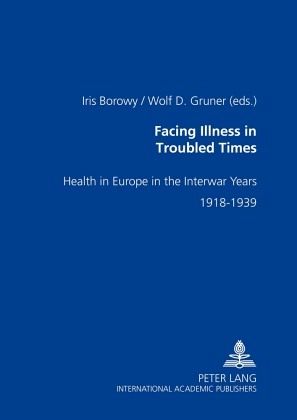
Facing Illness in Troubled Times
Health in Europe in the Interwar Years, 1918-1939
Herausgegeben: Borowy, Iris; Gruner, Wolf D.
Versandkostenfrei!
Versandfertig in 6-10 Tagen
115,50 €
inkl. MwSt.

PAYBACK Punkte
0 °P sammeln!
Health was a central theme in interwar Europe. The trauma of the First World War, political turmoil and economic crisis placed special demands on public health. Governments engaged to an unprecedented degree in social policy, establishing new sanitary institutions and structures. New scientific doctrines helped spread new ideas. In the process, health gained many functions: It spurred nation-building. It served to integrate and exclude people, define borders and forge identities. Health played a crucial role in the evolving political and social order of interwar Europe. But how healthy were th...
Health was a central theme in interwar Europe. The trauma of the First World War, political turmoil and economic crisis placed special demands on public health. Governments engaged to an unprecedented degree in social policy, establishing new sanitary institutions and structures. New scientific doctrines helped spread new ideas. In the process, health gained many functions: It spurred nation-building. It served to integrate and exclude people, define borders and forge identities. Health played a crucial role in the evolving political and social order of interwar Europe. But how healthy were the people really? How did their health respond to policies, and how did policies respond to their health? In this study fourteen scholars address key aspects of the issue.












